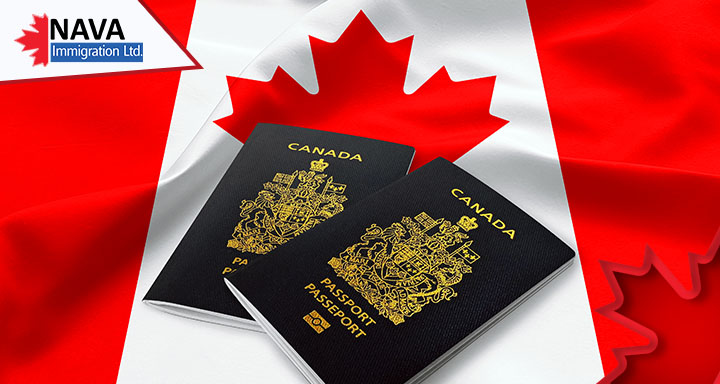How IRCC Decides Between Single And Multiple Entry Visas
Multiple-entry visas to Canada are no longer the standard for visitors to the country. IRCC has recently updated its instructions to immigration officers on the issuance of multiple v/s. single-entry visas to Canada, with tighter restrictions on who might be given a multiple-entry visa. Moreover, IRCC officers make the final decision on what kind of visa to issue to a visitor. Well, here’s how IRCC decides between single and multiple entry visas. So, without further ado, let us begin!
Who Requires A Visa?
Visitors from most countries will be required to visit Canada.
A visa enables a foreign national to cross a port of entry and enter Canada as a visitor, worker, or student. Visas are generally stamped onto a visitor’s passport.
Nationals of some nations do not require visas but instead must obtain an Electronic Travel Authorization (eTA) to visit Canada.
An eTA also follows for entry to Canada but is typically easier and quicker to obtain than a visa. Some visitors, like US citizens and green card holders, require neither a visa nor an eTA to seek entry to Canada.
Note: Nationals of some nations may or may not require a visa to Canada based on whether they meet certain conditions.
What Is The Difference Between A Single-Entry Visa and Multiple-Entry Visa?
Before discussing how IRCC decides between single and multiple entry visas, let us first know what is the difference between the two.
When applying for a visa to Canada, applicants might be considered either for single-entry or multiple-entry visas.
A multiple-entry visa enables its holders to enter and leave Canada as often as necessary during its validity period. These visas can be valid for up to ten years or until the expiry of the applicant’s passport, travel documents, or biometrics, whichever comes first.
Single-entry visas, on the other hand, only allow one entry into Canada and are usually only valid for a foreign national’s purpose of visit to Canada. If an applicant on a single-entry visa leaves Canada and wishes to re-enter the nation afterwards, they will have to obtain another visa.
Factors Considered For Single v/s Multiple-Entry Visas
Based on the latest information from IRCC, immigration officers deciding whether to issue a single-entry or multiple-entry visa will take into account multiple considerations, which can be grouped along four themes:
- Purpose of visit
- Funds available
- Need for medical treatment
- Other factors
IRCC officers are instructed to make the following considerations around each of these themes when issuing a visa to Canada.
| Consideration Theme | Questions Asked |
| Purpose Of Visit | – Is the visit for a one-time event, such as a conference, training, or tourism, or will the applicant frequently return to Canada (e.g., to visit close family)? – Is the applicant a short-term student or worker exempt from needing a work or study permit? – Does the applicant require parental authorization for each visit, such as an unaccompanied minor attending a summer program? – Is the visit for compassionate reasons, like caring for a critically ill or dying family member? |
| Funds | – Does the applicant have a stable income, such as from employment, to fund multiple trips to Canada? – If a host in Canada will cover expenses, is proof of their relationship provided, and is the host financially established? – Has the host invited other individuals, and do they have enough resources to support everyone for multiple visits? – If the applicant’s employer is funding the trip (e.g., for a business meeting), have they submitted a supporting letter? |
| Medical | – Does the applicant have any health conditions that could worsen over time? – Is the applicant traveling to Canada for medical treatment? – Has the applicant submitted a plan to mitigate potential health risks during their stay, such as proof of valid health insurance? |
| Other Factors | – Has the applicant shown strong ties to their home country, such as employment or family responsibilities? – Have they traveled outside their home country before, including to Canada? If so, did they adhere to the visa conditions? – Has the applicant been denied a visa for Canada or any other country in the past? |
Further Considerations To Determine The Visa Validity Period
How IRCC decides between single and multiple entry visas? Well, for multiple-entry visas, the validity period might be shorter than the maximum allowable time.
Some additional factors that IRCC considers when determining the visa validity period include:
- The purpose of the visit (is the applicant traveling to Canada for a short-term purpose (for example, business visitors providing after sales-support);
- The applicant’s status in their current country of residence (are the applicant’s ties to the home country and to Canada likely to change in the future?).
- Political or economic conditions in the applicant’s home country and how these may impact the applicant’s ability to return.
What To Do If Your Visa Application Is Refused?
A visa application to Canada might be refused if:
- The reviewing immigration officer is not satisfied that the applicant will leave Canada after their authorized stay
- The admissible is inadmissible to Canada (for example, due to medical conditions or past criminal activity)
There is also no formal appeal process to appeal a visa refusal. If an applicant wishes to re-apply for a visa to Canada, IRCC advises them to only do so if their situation has meaningfully changed.
According to the department, applying with the same information in your application will only lead to another refusal.
When Should You Re-Apply For A Visa After A Refusal?
The last part in knowing how IRCC decides between single and multiple entry visas is when one can reapply for a visa after a refusal.
IRCC offers the following examples of situations where an applicant’s conditions have meaningfully changed enough to reapply:
- The applicant has applied for criminal rehabilitation and was approved
- The applicant is eligible for deemed rehabilitation
- The applicant is still inadmissible but is applying for a temporary resident permit
- The applicant was inadmissible for medical reasons, which have changed since submitting the previous visa application
Newcomers who are criminally or medically inadmissible to visit Canada have numerous options to overcome their inadmissibility.
IRCC officers have to enter notes around refusals into the Global Case Management System (GCMS). This is a system that IRCC uses to handle and make decisions on immigration applications. These include:
- The circumstances of the application
- The reason for a refusal
- The process an immigration officer used in coming to or reaching a decision on the application
Ordering GCMS notes can, yield a wealth of information to newcomers who are facing a refusal on their application.
If you seek information on how to begin your Canada immigration application process, you can talk to our NavaImmigration experts at 1800-918-8490. You can also drop us an email at [email protected].





